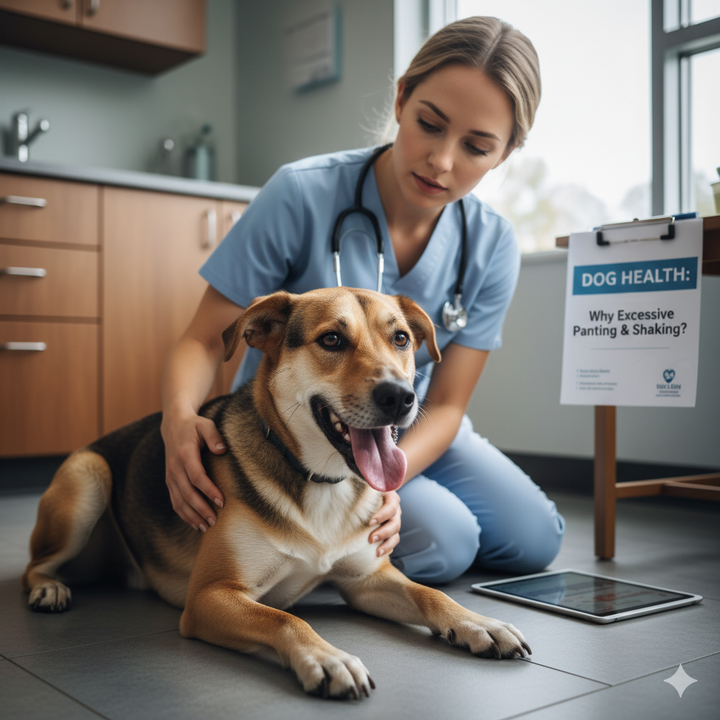Black Dog Poo: Causes, Concerns & When to See Vet | Pawsitive One
Black Dog Poo: Why It Happens & What To Do When You See It
Finding black dog poo can be a truly alarming discovery for any pet owner. Unlike other changes in stool colour or consistency that might suggest a minor upset, black, tarry stool (medically known as melena) often points to a serious underlying issue that requires immediate attention.
At Pawsitive One, while we focus on making the clean-up sustainable with our compostable dog poop bags, we also believe in empowering Australian pet owners with crucial health information. When it comes to black dog poo, early recognition and action can be life-saving.
So, let's understand why it happens and, most importantly, what you need to do.
What Does Black, Tarry Dog Poo Mean?
The distinguishing characteristic of melena is its dark, sticky, tar-like appearance. It's usually very smelly and is caused by digested blood in the stool.
-
Digested Blood: Unlike fresh red blood (which indicates bleeding in the lower digestive tract, closer to the anus), blood that has travelled through the digestive system gets broken down. This process turns it dark, similar to how blood turns black when exposed to stomach acids.
-
Source: This means the bleeding is typically originating from the upper gastrointestinal (GI) tract, which includes the oesophagus, stomach, and small intestine.
Why Is Black Dog Poo a Red Flag?
Because it indicates internal bleeding. While the cause can vary, internal bleeding is always a serious concern and can quickly lead to anaemia, weakness, and other life-threatening complications if not addressed.
Common Causes of Black Dog Poo (Melena)
Here’s a breakdown of the potential reasons for black, tarry stools:

FAQs: Black Dog Poo & Your Dog's Health
Q1: Is black dog poo always an emergency? A: Yes, almost always. Black, tarry stool (melena) indicates digested blood, usually from the upper gastrointestinal tract. This is a serious symptom that warrants an immediate call to your veterinarian or an emergency vet clinic. Do not wait to see if it improves.
Q2: Can diet cause black dog poo? A: While a sudden change to a very dark, iron-rich food or a treat containing activated charcoal (used for detoxification) could temporarily darken stool, it typically won't create the sticky, tar-like consistency of melena. If you suspect diet is the cause, but the stool is truly black and tarry, it's still best to consult your vet to rule out bleeding.
Q3: What's the difference between black dog poo and dark brown dog poo? A: Dark brown poo is generally normal and healthy. Black dog poo (melena) is distinct: it's not just dark brown, but typically a very deep, inky black, often with a shiny, sticky, tar-like consistency. It also usually has a particularly foul, distinct odour. If you're unsure, it's always safer to assume it's melena and contact your vet.
Q4: Can medication cause black dog poo? A: Yes, certain medications, particularly NSAIDs (non-steroidal anti-inflammatory drugs) like carprofen or meloxicam, can cause gastrointestinal irritation and bleeding, leading to melena. Some medications containing bismuth subsalicylate (like Pepto-Bismol, which is NOT recommended for dogs without vet guidance) can also turn stool black. Always inform your vet about any medications your dog is taking.
Q5: What should I do if I find black dog poo? A:
-
Do NOT panic, but act quickly.
-
Contact your veterinarian immediately or go to your nearest emergency vet clinic.
-
If possible and safe to do so, collect a sample (using one of your Pawsitive One compostable bags, of course!) to take with you to the vet. This can help with diagnosis.
-
Be prepared to tell your vet about any recent dietary changes, medications, or other symptoms your dog has shown (vomiting, lethargy, loss of appetite, etc.).
Q6: What will the vet do if my dog has black poo? A: Your vet will conduct a thorough examination and likely recommend diagnostic tests such as:
-
Blood tests (to check for anaemia, organ function, clotting ability)
-
Stool analysis
-
Imaging (X-rays, ultrasound)
-
Endoscopy (to directly visualize the GI tract)
-
Treatment will depend on the underlying cause but may involve medication, fluid therapy, dietary changes, or in severe cases,

















